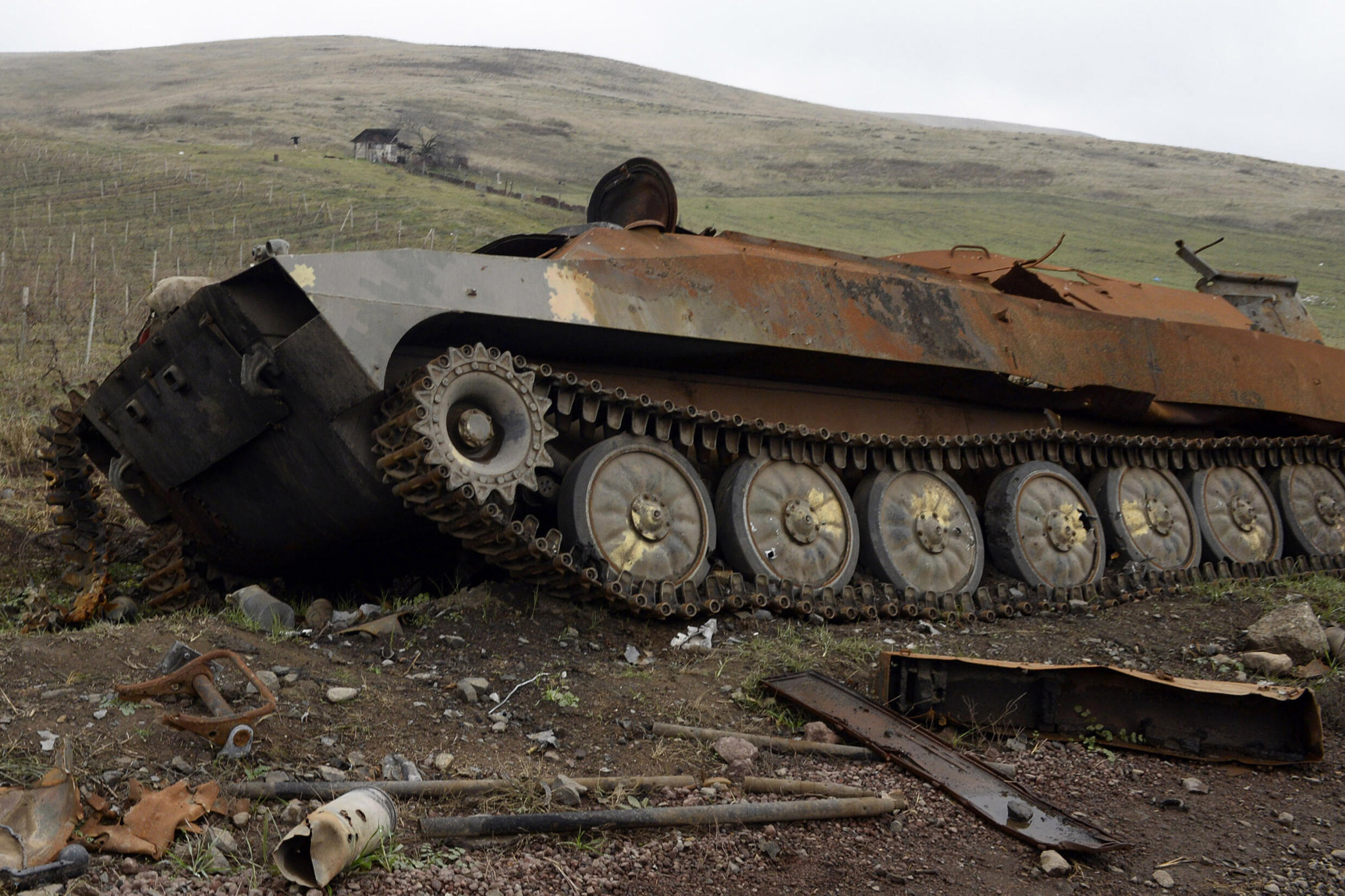First modification:
The Kremlin reported that President Vladimir Putin is working on a “cessation of hostilities” after the violent escalation that took place in the last hours between Baku and Yerevan. The second reported the death of 49 soldiers after border clashes and warned that they can respond to this “large-scale provocation.” The European Union condemned the events and France promised to bring the issue up for discussion in the Security Council.
This Tuesday, September 13, the conflict that Azerbaijan and Armenia have maintained for decades reappeared. The Armenian Prime Minister, Nikol Pashinian, denounced in Parliament that 49 soldiers died on the side of the border due to an Azeri attack.
“The figure is not final,” he said. The Ministry of Health also reported that three civilians were injured, one of them seriously.
According to the premier, the actions took place in “four directions and later three others were added” and are linked to Baku’s lack of will to channel the peace negotiations on the Nagorno-Karabakh enclave, a space that is disputed historically and for which it spilled over into a new war in September 2020.
In contrast, the Azerbaijani Ministry of Defense pointed out that Armenian soldiers opened fire “intensely with weapons of various calibers” against positions of their Army, something that caused “losses among the personnel of the Armed Forces”.
From there, “decisive response measures were taken” by the military, the statement said.
In this framework, the Kremlin reported a negotiated “cessation of hostilities” and that they hope it will be respected. The Foreign Ministry showed “extreme concern over the sharp deterioration of the situation” and urged them to resolve the dispute “exclusively through political and diplomatic means.”
“We call on the parties to refrain from further escalation, exercise restraint and strictly observe the ceasefire,” it added. However, Azerbaijani media affirmed that the peace did not last even 15 minutes and from Armenia confirmed that the fighting has subsided, but persists.

In his appearance before Parliament, Pashinian stressed that “Azerbaijan does not want negotiations”, something that – he said – was fixed in a meeting in Brussels with the leader Ilham Aliev.
The Armenian Prime Minister discussed the latest developments with the President of the European Council, Charles Michel, who stressed that “peace and stability in the region have no alternative”.
The international community calls for negotiations
France will raise the Azeri-Armenian conflict to the United Nations Security Council for discussion, they reported from the Elysee Palace after President Emmanuel Macron spoke with the prime minister of Yerevan.
The French head of state, open to speaking with his Azerbaijani counterpart Ilham Aliev, called for respect for the ceasefire and the territorial integrity of Armenia and warned that he will remain “active” so that the parties resolve the problem at a negotiating table.
Last night’s armed confrontations between #Armenia and #Azerbaijan is a dangerous escalation that needs to stop. We urge immediate cessation of hostilities and return to the negotiation table. #EU is in touch with both sides to contribute to de-escalation.
— Josep Borrell Fontelles (@JosepBorrellF) September 13, 2022
While the Collective Security Treaty Organization (CSTO), the military alliance that unites six Soviet republics and that includes Armenia, condemned the “use of force” in this conflict.
“For the settlement of disputes, exclusively political-diplomatic methods must be used,” reads a statement from the bloc led by Russia and also made up of Belarus, Kazakhstan, Kyrgyzstan and Tajikistan.
The European Union also called for a return to calm. “It is essential that hostilities stop and that we return to the negotiating table. The ceasefire must be fully respected”, said Josep Borrell.
The United States also referred to the clashes in the Caucasus. Secretary of State Anthony Blinken said they made it clear “a long time ago” that “there can be no military solution to the conflict.”
“We urge an end to any military hostility immediately,” added the diplomat’s office.
With EFE and Reuters





![[Img #74683]](https://thelatestnews.world/wp-content/uploads/2024/12/The-main-mistakes-to-avoid-when-betting-on-electronic-sports-150x150.jpg)








Add Comment